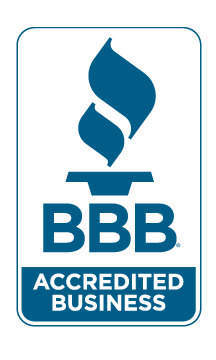In the competitive world of life insurance, success is not just about effort—it's about strategic execution. At Legacy Agent, we empower our agents to exceed their sales goals by turning challenges into substantial achievements.
Blueprint for SuccessEnvision submitting three to five applications each week, with each application carrying a $75 monthly premium. Thanks to our advanced commission structure—110% advance on nine months' premium paid monthly—agents can earn a weekly income ranging from $2,970 to $4,950, amounting to $154,440 to $257,400 annually.
Achieving an 80% placement rate can yield a net annual income, after subtracting $18,000 in marketing costs, of between $105,552 and $187,920. Enhancing the placement rate to 90% boosts potential earnings to between $120,996 and $213,660.
Net Income Calculation- Marketing Cost: $400 per week for 45 weeks totals $18,000 annually.
- Net Annual Income at 80% Placement: $105,552 to $187,920 after marketing costs.
- Net Annual Income at 90% Placement: $120,996 to $213,660 after marketing costs.
Field underwriting is crucial for assessing client risks accurately and streamlining policy issuance, especially for simplified issue products:
- Detailed Health Questionnaires: Include comprehensive queries about all medications, their dosages, purposes, and history.
- Medical History Analysis: For significant health events like heart attacks or cancer, document the diagnosis date, treatment dates, and any subsequent health developments.
- Regular Updates: Maintain up-to-date client health information to ensure coverage remains appropriate as their situation changes.
Legacy Agent equips its agents with a powerful quoting tool that allows the input of clients' prescriptions and significant health events to determine the best carrier for the risk. This tool streamlines the decision-making process and increases the efficiency of policy issuance.
Training and SupportLegacy Agent is committed to supporting its agents through comprehensive training and mentorship. We assist in navigating complex cases and choosing the right carrier on a case-by-case basis. Agents can reach out for support by email or schedule a discussion for detailed case analysis, ensuring they feel confident and well-supported in their decision-making.
Enhancing Customer InteractionUtilizing comprehensive CRM systems like InsuredMine can streamline your client interactions, ensuring no opportunity slips through the cracks. Such systems help track key performance indicators, manage leads effectively, and provide data-driven insights to refine your sales strategies (InsuredMine CRM).
Competitive Analysis and Unique Selling PropositionUnderstand your competition and carve out your niche by offering unique services or better terms. For instance, providing superior customer support or faster claim processing can set you apart. Tailoring insurance solutions to individual needs can also serve as a strong differentiator in a crowded market (McKinsey & Company).
Real-World Strategies for Client Engagement- Quality Over Quantity: Prioritize the quality of your field underwriting to ensure clients receive the right coverage, which helps minimize cancellations and enhances the quality of your submissions.
- Regular Client Communication: Building trust through consistent communication not only helps in retaining clients but also encourages referrals. Regular updates and check-ins can lead to higher client retention and satisfaction (Life Insurance Manager).
- Leveraging Digital Tools: Implement tools that automate routine tasks, such as policy management and client follow-ups, allowing you more time to focus on strategic activities that drive sales (Life Insurance Manager).
At Legacy Agent, we are more than just a team; we're a community committed to growth and excellence. By prioritizing quality submissions and mastering field underwriting, you're not just meeting targets but building a sustainable and lucrative career. Every application is a step towards your success—make each one count!







